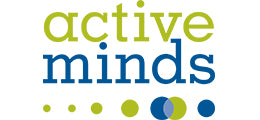"Between the fifth and sixth grades, children reduce activity levels an average of 50 percent" - Rod Dishman, professor of kinesiology at the University of Georgia
My nine-year-old nephew Jake has boundless energy. He wakes up every day (sans alarm) by 6am. He regularly does gymnastics, yoga, and strength training exercises. He can hold his own on the Core Flytes. He eats nutritious foods, often preparing them himself. He has legit six pack abs. Yes, Jake is only nine. And, no, he does none of these activities due to parental pressure or guilting. He does them because he wants to do them.
Jake is approaching the age when children typically begin to listen less to their parents, and more to their friends and their own interests: the early side of the teenage years.
Most parents want to instill in their children the idea that they ought to do things that are good for them, such as eating well, sleeping sufficiently, and exercising regularly. However, a new study shows that parental influence and pressure can backfire.
Researchers at the University of Georgia (UGA) found that students who report that they "don't feel that they are in control of their exercise choices" or "feel pressured by adults to be more active" are less active than their counterparts. These findings were published in Medicine & Science in Sports & Exercise.
Between the fifth and sixth grades, children reduce activity levels an average of 50 percent, according to Rod Dishman, professor of kinesiology at UGA. As kids embark on their teenage years, they begin a transition from a play-centric life to a studies-centric one. Their level of physical activity results from their independent choices to be active. Valuing and enjoying physical activity are the keys to continued exercise habits. This early period in a child's life can determine how active he or she will be for years to come, as habits build upon habits, developing into a lifestyle with athletic passions.
This finding puts parents in a bit of a catch-22. You want your kids to exercise, but telling them to do so is counterproductive. So, what does Dishman and his team recommend? They observed that children who identify as “exercisers” at a younger age are more likely to choose to be active later on. Giving kids opportunities to engage in structured games in school, adding physical activities to lesson plans, and exposing them to a variety of sports can help. In short, find ways for children to enjoy being active. Making kids feel obligated to be active results in a dissociation between their individuality and their physicality. Dishman says, “It’s the kids who say they are intrinsically motivated who are more active than the kids who aren’t.”
We shall see how young Jake fares as he crosses that threshold into his teen years. The odds are certainly in his favor, as he exercises and eats well because he wants to and not because mom or dad told him to.
We'd love to hear from you. What do you think is the best way for children to develop lifelong healthy habits? Comment below or on our Facebook page at facebook.com/flytefitness, or tweet us at @flytefitness.
Be Flyte Fit,
Jeremy Greenberg
Co-Founder & CEO
Flyte Fitness
P.S. DON’T FORGET TO SIGN UP FOR FITNESS UPDATES! CLICK THE BOX AT THE TOP OF THIS PAGE!
